Six years ago, a brand advertisement sponsored by Dior popped up on WeChat Moments, becoming the first luxury brand promotion to debut on the platform. Over half a decade later, WeChat has completely redefined luxury brand marketing in the Chinese marketplace. With a mission to tell brand stories both socially and digitally, WeChat was quickly embraced by many international brands as a point of entry into the Chinese fashion community.
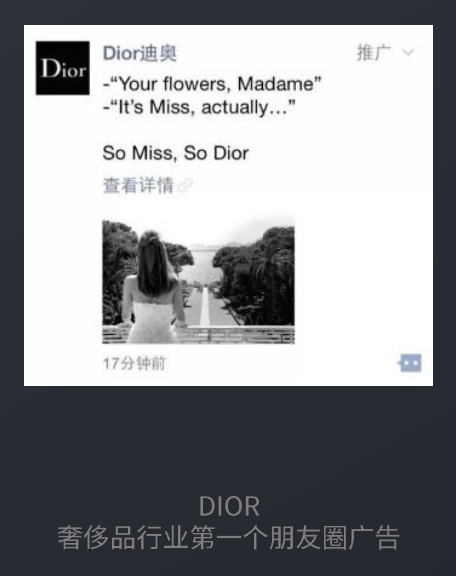
Recently, WeChat and its developer, Tencent, released a report that recaps its luxury advertising business for 2019 called Solution for Luxury Brands Advertising on WeChat. According to the report, more and more luxury brands have injected money into their WeChat Marketing campaigns over the last five years.
This started with simple advertisements on WeChat Moments, but brands like Prada and Dior soon created experiences where users could complete transactions without having to exit the platform. WeChat started as a showcase for branded promotional ads but quickly became an important bridge between luxury brands and consumers.
By the end of 2019, over 90 percent of luxury brands with a presence in China had established WeChat Mini Programs. WeChat had gradually become a platform for online selling, brand services, and VIP customer management, which isn't surprising given its massive user base. Luxury brands invested 80 percent more performance-based advertising on WeChat in 2019, hoping to increase their follower numbers and then redirect that traffic to their official websites or e-commerce platforms. Below, Jing Daily shares the main takeaways from the WeChat report:
Livestreaming feature: Turning the online showroom into sales#
After WeChat upgraded its tech support, luxury brands are now laying out more comprehensive affiliate marketing plans, as they want to turn WeChat’s vast online traffic into more profit. According to the report, livestreams of major brands’ runway shows during fashion week have become popular over the past few years. Eventually, a feature called Online Showroom was embedded within a Mini Program, generating a lot of online buzz with fashion influencers and mainstream audiences. Online Showroom quickly became a hit topic, and brands created a sense of involvement by inviting netizens to virtually sit front-row at their shows.
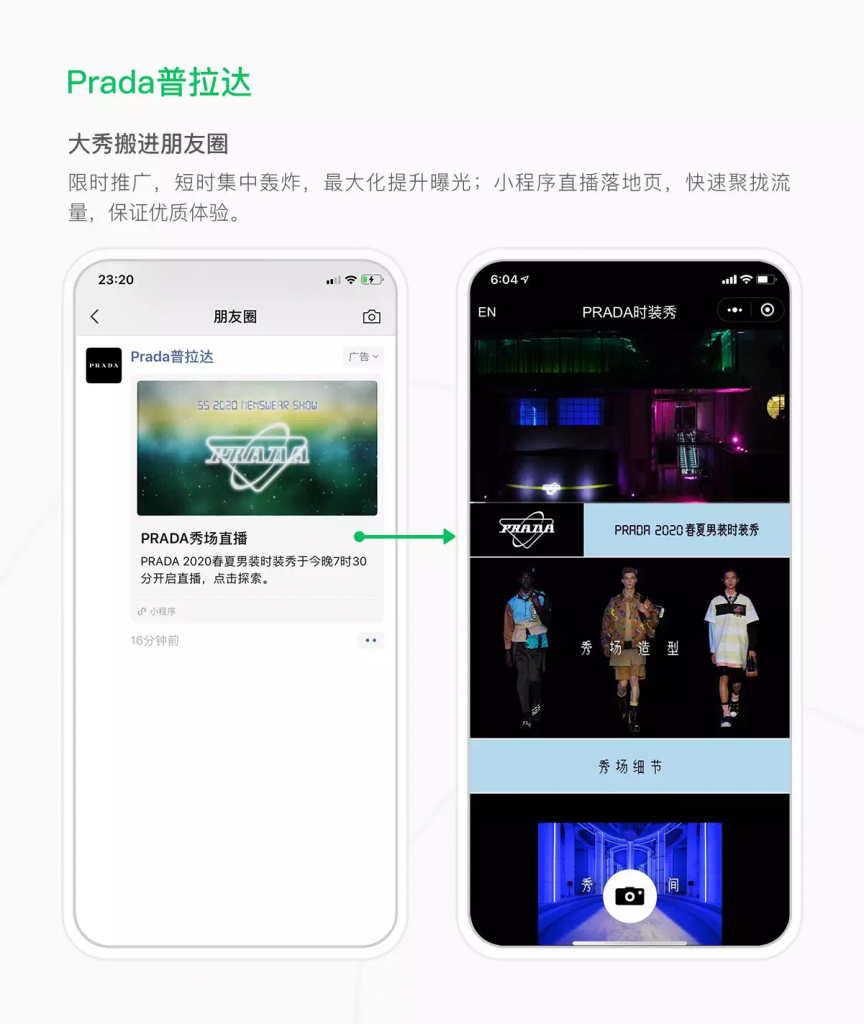
Mini-Program: redirect traffic to offline events#
Last year, offline exhibitions became a new way for luxury brands to connect with audiences, and they were often hit topics on social media. Inviting netizens and fans of the brand to offline events is a smart and popular marketing strategy. Online fans become prospective customers after hearing a brand’s history and story. This leads to online buzz because fans are often influencers within their social circle. Netizens love the recognition of being invited to offline events by luxury brands. According to the report, at least ten luxury brands promoted their offline exhibitions through WeChat last year.
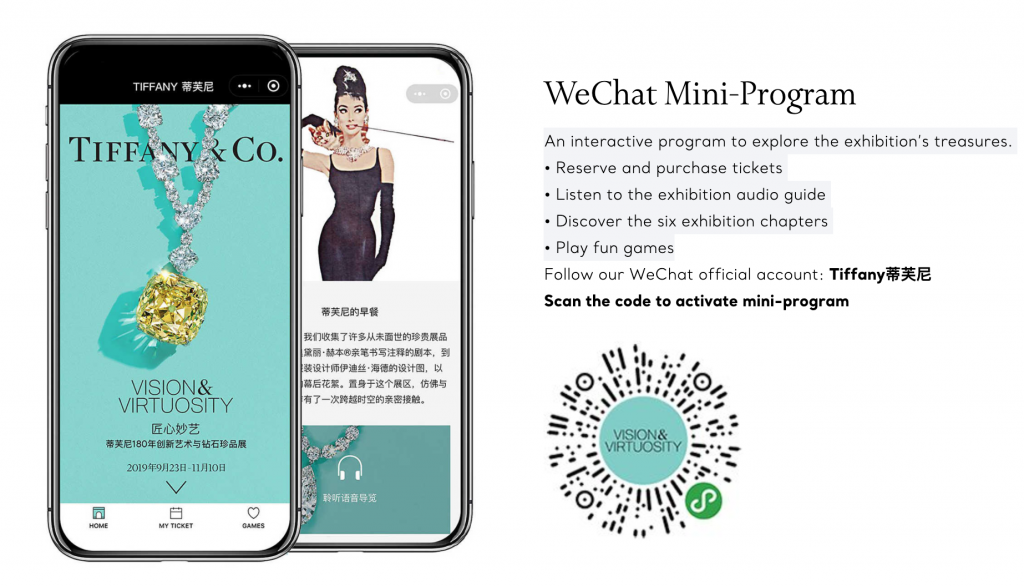
Thanks to their design, Mini Programs offer several uses and functionalities. They can act as interactive spaces where a brand communicates with fans. But, a Mini Program can also display new products in the form of a pop-up shop. According to WeChat, Mini Programs act as open spaces where the only limitation is a marketing team's imagination.
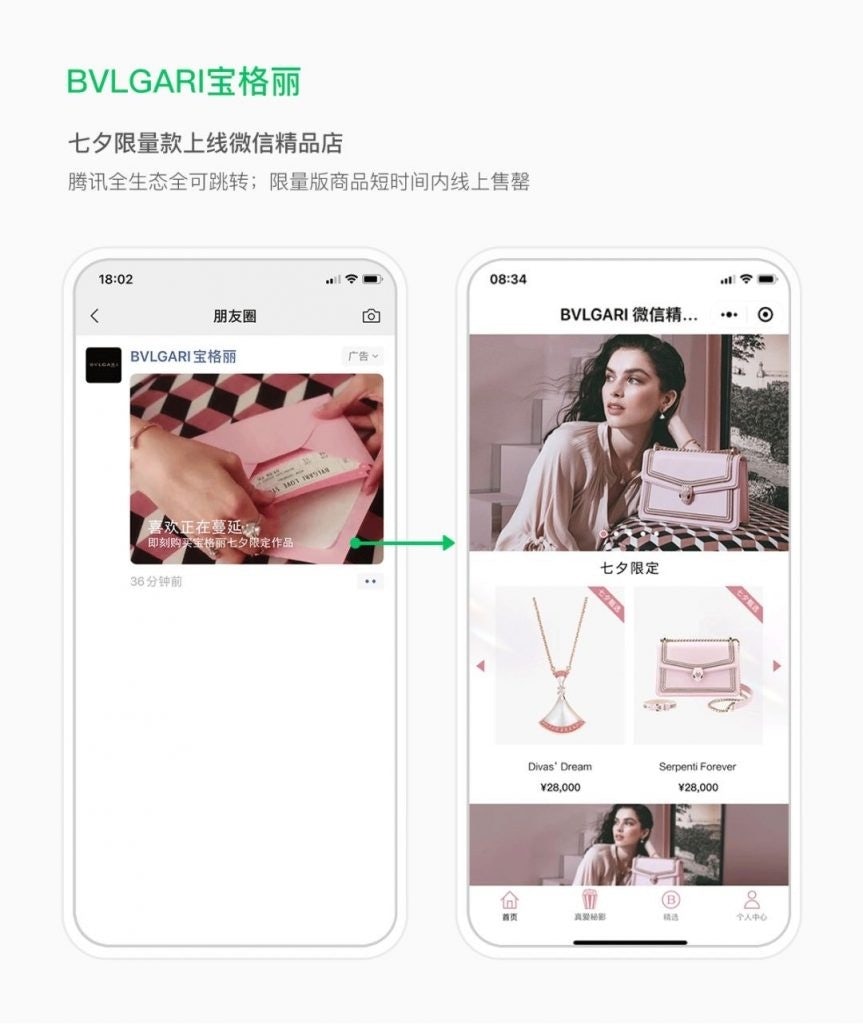
Moments Ads: a celebrity promotion engine#
Luxury brands invest in celebrities because of their ability to sell, particularly in the Chinese market, where consumers trust the voices of KOLs and idols. But according to the report, celebrities benefited, as well, thanks to the recognition those high-end brand collaborations offered. How does WeChat facilitate these partnerships? Moments Ads is the best engine.
One obvious benefit is the way a celebrity profile links to a company's marketing campaign; another is the way brands can embed personal messages into a user's Moments Updates, allowing him or her to feel as if they're friends with the star on WeChat. These strategies help introduce the brand to a star’s fan base where, hopefully, that traffic can turn into sales.
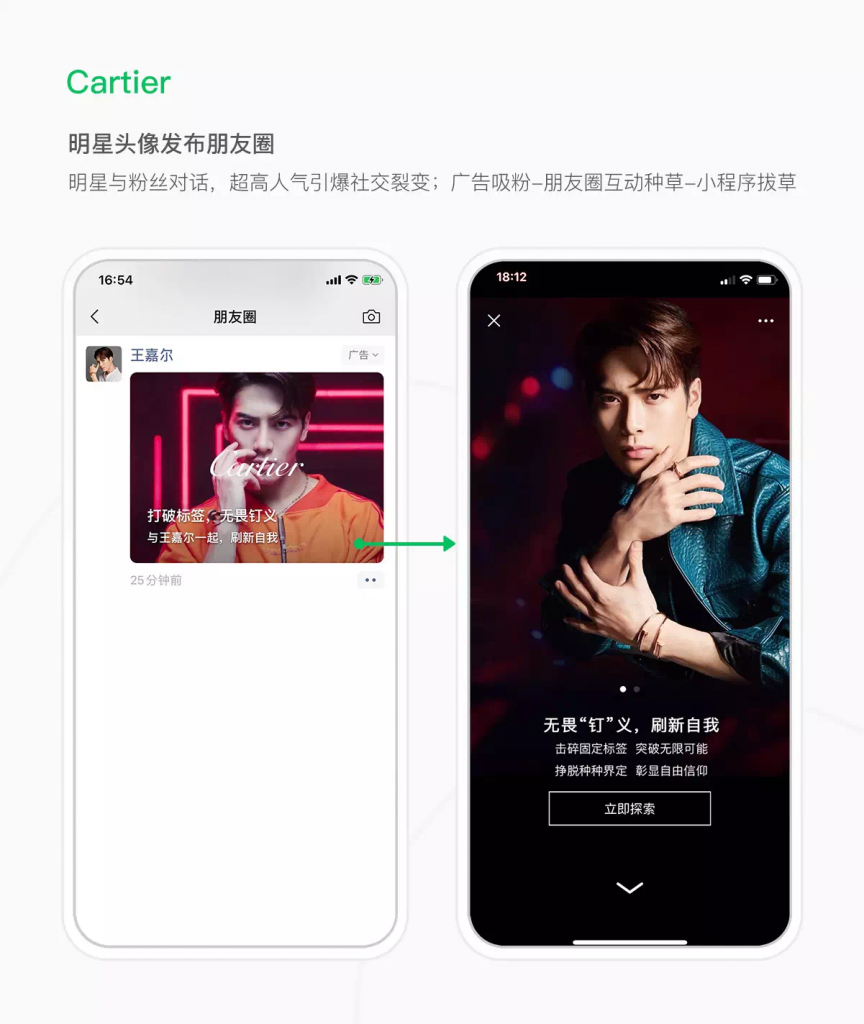
Digging into the market for short video content#
WeChat Channel is a new feature that allows users to explore videos from media accounts, celebrities, and influencers. Though this new feature is still in its early testing stage (for internal use only thus far), luxury brands like Louis Vuitton, Prada, and Fendi have already taken the first step by opening official accounts. With WeChat Channel, the audience can view content published by users who aren’t already their contacts and forward or share that content. WeChat sees this new arena as a place for brands to promote their values and craft to a much larger crowd.
In the report, WeChat recaps its successful marketing cases over the past five years while also predicting future possibilities for the platform. These include entering into the short video industry and further developing its Mini Program advertising functions.
With more than 1.1 billion monthly active users, every decision WeChat makes impacts China’s entire digital media landscape. The user base is never a problem for WeChat, but it must always work on retaining its advantages and helping its brands find new ways to profit. But can WeChat compete with Little Red Book and Kuaishou in the short video market? These issues are what WeChat must address if it wants luxury brands to stick around over the next decade.
